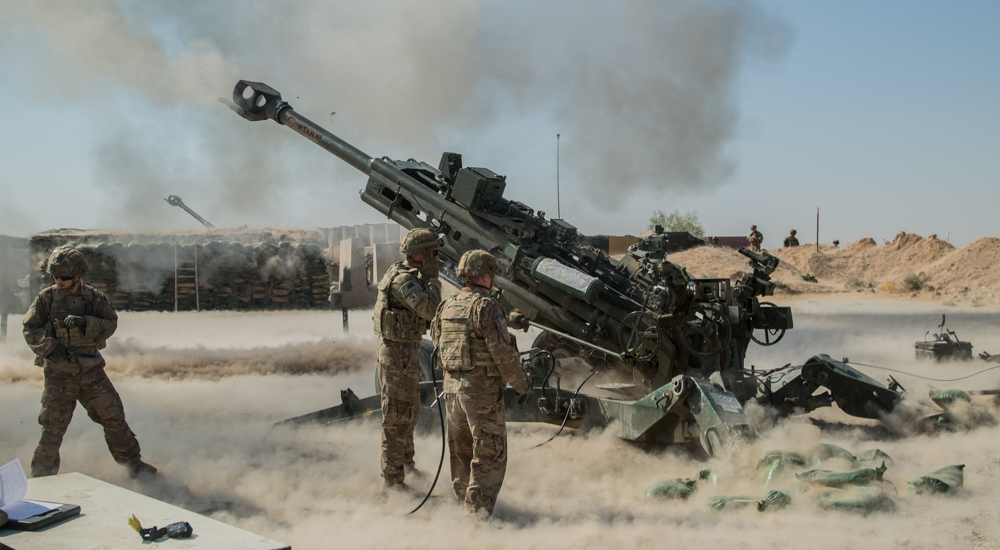 Photo by Pfc. Kahlil Dash | U.S. Department of Defense
Photo by Pfc. Kahlil Dash | U.S. Department of Defense
Biden and Iraq: Preventing a Potential ISIS Resurgence
The US-led Coalition has been a pivotal force in countering the spread of ISIS, yet a potential resurgence threatens progress and highlights the need for continued involvement in Iraq. President Biden has a lengthy and tumultuous legacy in Iraq, yet the new US administration must understand previous mistakes and develop a long-term strategy to ensure America doesn’t simply return to its “forever war” in the Middle East.
Biden & Iraq: The First Time Around
Biden has a long and controversial history with US foreign policy in Iraq. As a Senator, President Biden voted for a resolution authorizing the use of military force in Iraq that led to the US invasion in 2003. The subsequent US-led occupation of the country sparked a violent insurgency and sectarian war. Since the start of the Iraq war, 4,700 US and ally troops have died and over 100,000 Iraqi civilians have been killed. The war cost the US over $806 billion and sparked broad opposition among governments and civilians alike.
As Vice President, Biden played a pivotal role in the Obama administration’s continued drawdown of US troops from Iraq. Yet withdrawing from Iraq created a power vacuum, allowing the Islamic State to expand. By 2014, ISIS controlled nearly a third of the country. The collapsed security situation prompted the Obama Administration to reengage in Iraq.
That year the US launched The Global Coalition to Defeat ISIS. Operation Inherent Resolve (OIR), the Coalition’s military component, carried out airstrike campaigns targeting ISIS economic infrastructure, and undertook operations liberating territory and people under ISIS control. By 2017, ISIS had lost 95% of its territory and the Iraqi Prime Minister Haider al Abadi declared victory over the Islamic State. ISIS formally lost its claim to all territory in 2019 but continues to operate at a low-level.
Operation Inherent Resolve: Advisory Phase
OIR has entered Support Stabilization, its final performative phase. Within this phase, Task Force-Iraq (TF-I) transitioned to a high-level military advisory group and reduced troop levels to a team of specialized experts mentoring Iraqi Security Forces (ISF) in overseeing operations, logistics, and intelligence. Last Spring, Coalition forces transferred six Iraqi bases back to full Iraqi control and consolidated to three major locations around Baghdad and Erbil. The ISF has made great progress in independent operations against ISIS but still relies heavily on US-led Coalition intelligence, surveillance, and air support, particularly in complex and time-sensitive operations.
ISIS is Still a Problem
Although the Islamic State has been weakened and operates in small cells across rural areas, a potential revived insurgency could have catastrophic effects on Coalition efforts. ISIS is unable to carry out sophisticated attacks outside of Iraq and Syria but is expanding its presence and increasing attacks within. The group continues online recruitment, remains well-funded, and is estimated to have more than 10,000 fighters.
A key concern is the Islamic State’s continued exploitation of ethnic and political tensions and security gaps in Iraq, particularly in areas between the Iraqi central government’s territory and territory governed by the semi-autonomous Kurdistan Regional Government. While Iraq is distracted with political unrest, an economic crisis, and COVID-19, existing security gaps widen, and ISIS gains more freedom to carry out operations and recruit new members. The recent Lead Inspector General Report to Congress on OIR stressed that maintaining military pressure will be key to the group’s containment.
Restraining a Potential ISIS Resurgence
Withdrawal from Iraq has been a long-term foreign policy goal, and the drawdown of US troops brings hope that America’s “forever war” will finally end. Yet failing to address a simmering ISIS resurgence could undermine hard-won achievements in the fight against the Islamic State and push Iraq back into ungovernable chaos. The Biden administration must learn from previous foreign policy blunders and remain attentive to the situation in Iraq. Full withdrawal from Iraq will require long-term strategic planning to ensure America does not return to square one in its fight against ISIS.
To effectively restrain a potential ISIS resurgence while following through with a long-sought US military withdrawal in Iraq, President Biden must maintain a rapid reaction force in the region to specifically respond to emergency situations and threats. A separate ability to carry out intelligence, surveillance, and reconnaissance (ISR) operations may be necessary as well. Although Iraqi Security Forces have made great progress in carrying out independent operations against ISIS, their continued dependence on Coalition advising and military support highlights the need for ongoing assistance. Biden should reinvigorate Global Coalition partners to maintain support for OIR, as military advising will be key to strengthening the ISF.





